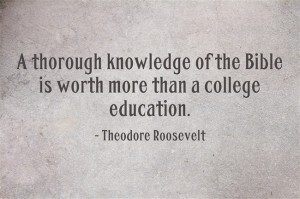This is a layman’s overview of the homeschool law in Nebraska. This is only my interpretation, as a parent who has filed for over 25 years. You need to read over the actual law before you file. This page is not legal, but will give you the basics of what you need to do. Home School Legal Defense Association gives a “legal analysis” at their website for every state. Nebraska Christian Home Educators Association gives more info on homeschooling in NE, including their synopsis of the law, and at the NE Department of Education website you can print out the law and download the forms to file. {One more link for you. If you’re in the North Platte area, check our homeschool group’s website for local homeschool info.}
There are 2 ways you can file an exception to enrolling your child in a state recognized “accredited” school. “Rule 13” is the original, and is filed by parents who have religious convictions for not enrolling their children in “accredited” schools. This law covers home educating families as well as non-accredited private schools. Actually there is no specific “homeschool” statute. We provide information to the state for a “private school” that happens to only have our own children enrolled, and us as their only teachers. “Rule 12” is the newer law for those families who desire to homeschool but do not have “religious convictions”. I understand that the basic “requirements” are the same for it as “Rule 13”, but what I list here is based on my experience with “Rule 13”.
In Nebraska we file as a private, non-accredited school. We are not asking “permission” to home educate. We are informing them of our private school and the students attending it, in accordance to their statute. “Permission” (actually requirement) has been given to us by God, not the state. The information required to comply with the NE state law are:
Hours Planned
- A list of “number of hours per month” that we will be educating. These hours must add up to 1032 hours for elementary grades, and 1080 for high school grades. When you receive a “Rule 13” packet, (printed from online, or mailed to you from the NDE when you request it) you will get a “Supplemental Sheet” (several pages) to fill out, making it perhaps easier for you to make sure you give the proper information. However, you are not required to use this form, only to provide the information required by Rule 13. (I write my own, which fits on one page, and only needs very minor changes from year to year.) The hours can be spread out over the months July through June. You are to file 30 days before you begin, and by July 15th for subsequent years.
Scope & Sequence
- A scope and sequence for each grade we are teaching for each of the following subjects: Math, Language Arts, Social Studies, Science, and Health. We, of course, are not limited to those subjects (and hopefully we will NOT limit our children to those) but they are the only ones the state is concerned with. If we are using one of the popular/known curricula, we can just list the name of it. The state is already familiar with the scope and sequence of such. If we use something new or more obscure, or plan our own we must include that scope and sequence with our “filing papers”.
Monitor Information
- Information about each “monitor” must also be included. The “monitor” is the person responsible for overseeing each class. List the parent or both that will be “overseeing.” You also need to include their “educational background” and teaching experience. There are no requirements, such as college graduate or teaching degree or such. Don’t hesitate to list any teaching experiences you have – even if none of them are in “state recognized” positions.
Birth Certificate
- A certified Birth Certificate must be filed for each child the first year that child is homeschooled, before Oct. 1. In Nebraska, you are required to file for children ages 7-16. You must have a “certified” official birth certificate. They will return it. Also they are now requiring that you file “Intent to homeschool” papers with your local school district the year your child turns 6, if that will be before Jan. 1. A copy of this affidavit can be found at the NCHEA site.
Notarized Forms
- 3 other provided forms must be filled out and notarized. 2 Parent’s forms (one for each parent) stating that you are sending your child/children to a non-accredited school and naming the “Parent Representative” of the school and the children’s names and ages. The 3rd form, is a “Parent Representative” form. The Parent Representative (which is either parent) is the person responsible for filing the calendar hours and scope and sequence, and monitor information. This form states that they are doing that. The Supplemental Sheets, listed above, contain that information.













